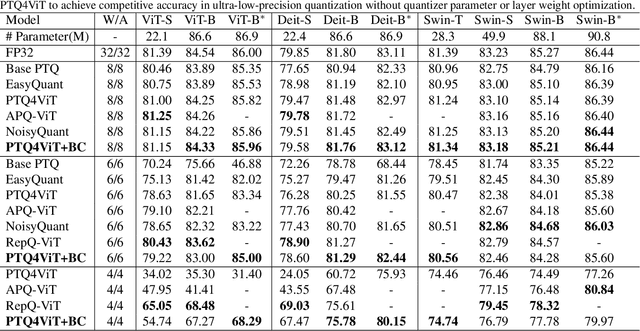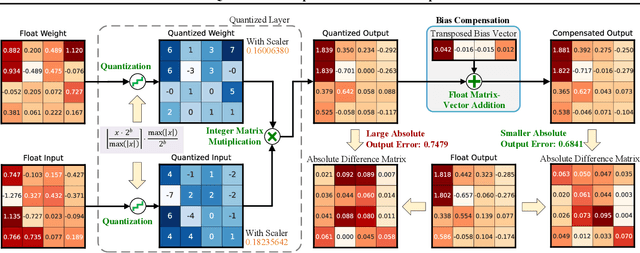Haoshuai Zheng
Minimize Quantization Output Error with Bias Compensation
Apr 02, 2024



Abstract:Quantization is a promising method that reduces memory usage and computational intensity of Deep Neural Networks (DNNs), but it often leads to significant output error that hinder model deployment. In this paper, we propose Bias Compensation (BC) to minimize the output error, thus realizing ultra-low-precision quantization without model fine-tuning. Instead of optimizing the non-convex quantization process as in most previous methods, the proposed BC bypasses the step to directly minimize the quantizing output error by identifying a bias vector for compensation. We have established that the minimization of output error through BC is a convex problem and provides an efficient strategy to procure optimal solutions associated with minimal output error,without the need for training or fine-tuning. We conduct extensive experiments on Vision Transformer models and Large Language Models, and the results show that our method notably reduces quantization output error, thereby permitting ultra-low-precision post-training quantization and enhancing the task performance of models. Especially, BC improves the accuracy of ViT-B with 4-bit PTQ4ViT by 36.89% on the ImageNet-1k task, and decreases the perplexity of OPT-350M with 3-bit GPTQ by 5.97 on WikiText2.The code is in https://github.com/GongCheng1919/bias-compensation.
 Add to Chrome
Add to Chrome Add to Firefox
Add to Firefox Add to Edge
Add to Edge